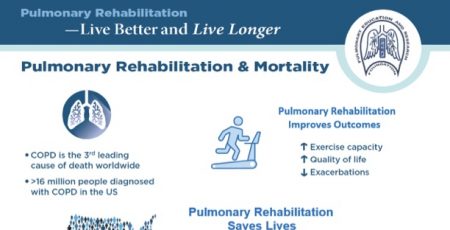
07 May Some Covid-19 Myths and the Need for Research to find Answers
Humans are hardwired to resolve uncertainty. We seek answers to life’s burning questions. New research suggests that we all act to reduce the risk of unexpected events in our lives, even if it means experiencing negative consequences.
Currently, humanity faces a novel coronavirus that even experts don’t yet understand. Our ingrained behaviors to seek answers in these uncertain times leads to the spread of misinformation and incorrect assumptions about the cause of the virus and the means to treat it.
PERF has put together some of the popular myths surrounding the COVID-19 pandemic, and briefly summarizes the state of our scientific understanding:
1) 5G networks contribute to the spread of COVID-19
Hundreds of mobile phone masts around the world were destroyed by vandals after conspiracy theories emerged claiming that 5G technology could contribute to the spread of the virus. COVID-19 is a respiratory virus, spread through droplets produced when an infected person coughs, sneezes, or speaks. People can also spread the virus by touching surfaces. Viruses cannot travel on radio waves or mobile networks. COVID-19 is spreading in many countries that do not have 5G mobile networks.
2) Using bleach or injecting disinfectant into your body
This is a dangerous myth that was recently propagated following a White House televised briefing. Bleach and disinfectant can be used carefully to disinfect surfaces, only. But according to the World Health Organization (WHO), do not under any circumstance spray or introduce [by ingesting or injecting] bleach or any other disinfectant into your body. Not only will they provide no protection against COVID-19, these substances are extremely poisonous. What’s more, they will cause irritation and damage if they come into contact with your skin or eyes. Remember to keep chlorine (bleach) and other disinfectants out of reach of children.
3) Hot weather kills the virus
This myth arose after research, which hadn’t been peer-reviewed by experts, suggested that temperature may play a role in the virus’ survival. The media was quick to report these unverified findings, even going so far as to speculate that the virus could not thrive in Africa’s warm climate. According to the WHO, the virus can be transmitted to ALL areas of the world, event hot and humid ones.
4) Chloroquine and Hydroxychloroquine
This anti-malaria drug was the target of early clinical trials in China and around the world as a potential treatment for COVID-19. There is currently no proof that hydroxychloroquine can prevent infection by SARS-CoV2 (the virus that causes COVID-19) or reduce its consequences. In fact, several studies now show no benefits of using the drug, and some show that outcomes might be even worse than using nothing at all. The misuse of hydroxychloroquine can cause serious side effects. An Arizona man sadly died after ingesting chloroquine phosphate – which is used to clean fish tanks – believing it would protect him from contracting COVID-19. Sadly, people who suffer from chronic diseases that are proven to benefit from hydroxychloroquine treated, such malaria and lupus, are now finding it hard to get the medications that they desperately need because stocks have been depleted during the current crisis. The WHO is coordinating efforts to develop and evaluate medicines to treat the virus, and several drug trials are ongoing.
5) Drinking alcohol kills the virus. While both alcohol and chlorine can kill the virus on the skin, spraying alcohol and/or chlorine over your body is not recommended and can be harmful, particularly to your eyes and mouth. More importantly, neither alcohol or chlorine will be effective in killing the virus if it has already entered the body. Do not ingest alcohol as a means of killing the virus. Do not ingest chlorine, ever.
6) Using ultraviolet light can kill the virus
While it’s true that some hospitals make use of strong UV-light to sanitize operating rooms, it is not safe to use this type of light on humans or animals. The safest and most effective means of removing bacteria from your hands is to follow CDC guidelines: wash with soap and water for at least 15 seconds, and use hand sanitizer (at least 60% alcohol) when available.
There are numerous other myths surrounding COVID-19, including virus transmission through insects, prevention through face-steaming, exposing oneself to heat, saline nose-rinsing, and the ingestion of pepper, garlic, and vitamin C. Needless to say, there’s no evidence that any of these so-called ‘treatments’ are effective against the virus.
With the heightened levels of fear and anxiety experienced by us all, it’s understandably tempting to snatch at answers to some of these important questions. But hasty assumptions only lead to the spread of falsehoods, which will hinder our understanding of the true nature of the pandemic. Be wary, too, of some people trying to exploit public uncertainty to sell unproven products and practices.
Now, more than ever, we must be guided by science, and the researchers and medical experts who study disease for a living. As Governor Gavin Newsome said: “The West Coast is — and will continue to be — guided by SCIENCE. We issued our stay at home orders early to keep the public healthy. We’ll open our economies with that same guiding principle.”
Nicholas B. Tiller, PhD
Research Fellow
The Lundquist Institute for Biomedical Innovation at Harbor-ULCA Medical Center





Brian
Posted at 22:50h, 21 JulyThat’s a well-researched post about the various myths during COVID 19. Thanks for providing answers to these unclear doubts especially when people are panic about this virus.
PERF
Posted at 09:08h, 24 JulyHi Brian,
Thanks for your feedback, and we’re pleased you found the article helpful. Unfortunately, myth and misinformation are spread too easily in our current culture, so we always strive to impart good, evidence-based advice.
Stay safe!
Nicholas Tiller, PhD
Tagband UK
Posted at 03:17h, 07 SeptemberNice article! Thanks for sharing this post with us. I really enjoyed reading this post and very helpful for me. Thanks and keep sharing.